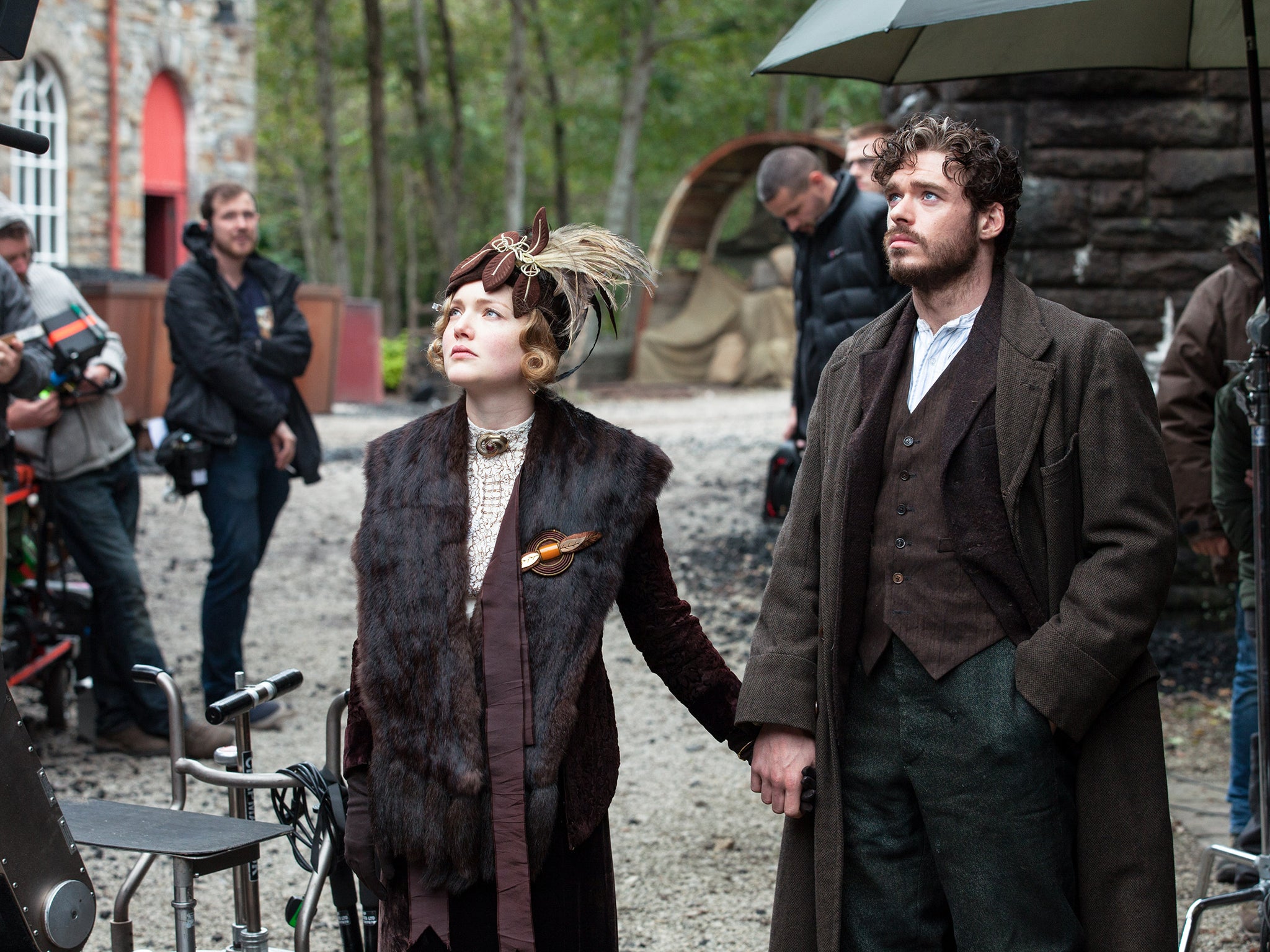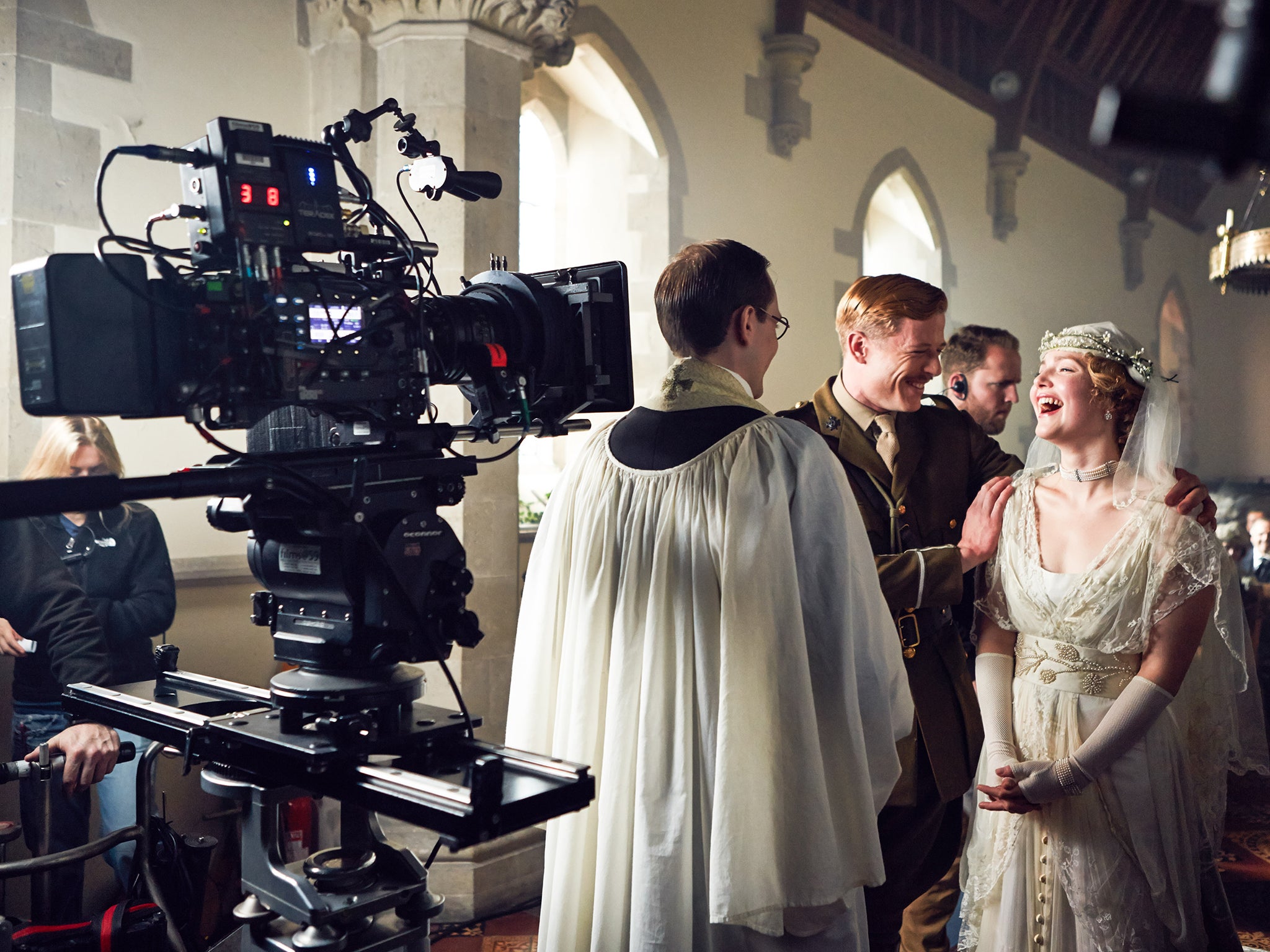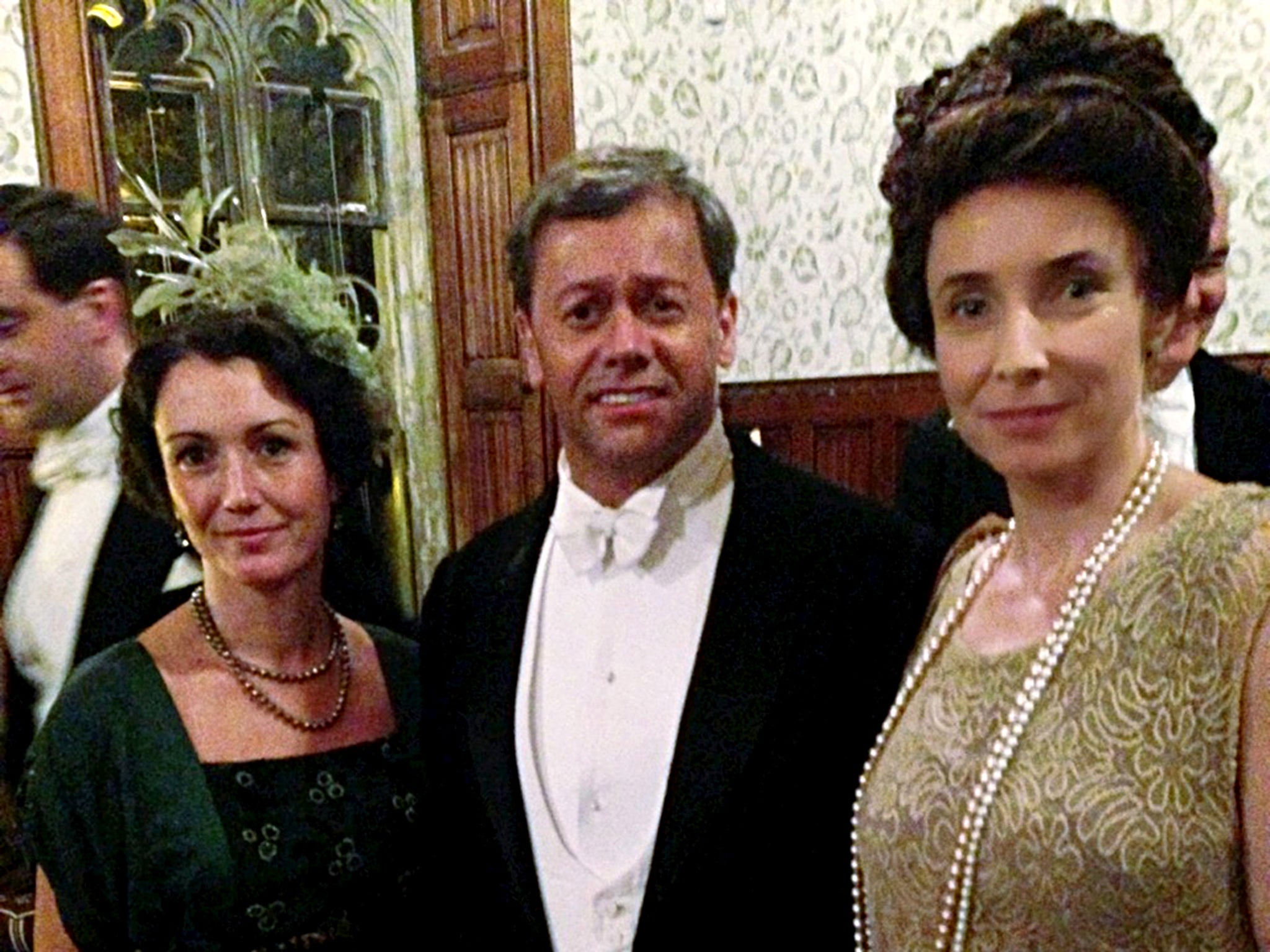Lady Chatterley's Lover: Script consultant to BBC adaptation on arguing over sex scenes and dressing up in historic knickers
The director was convinced including male-to-female oral sex was a good idea

Your support helps us to tell the story
From reproductive rights to climate change to Big Tech, The Independent is on the ground when the story is developing. Whether it's investigating the financials of Elon Musk's pro-Trump PAC or producing our latest documentary, 'The A Word', which shines a light on the American women fighting for reproductive rights, we know how important it is to parse out the facts from the messaging.
At such a critical moment in US history, we need reporters on the ground. Your donation allows us to keep sending journalists to speak to both sides of the story.
The Independent is trusted by Americans across the entire political spectrum. And unlike many other quality news outlets, we choose not to lock Americans out of our reporting and analysis with paywalls. We believe quality journalism should be available to everyone, paid for by those who can afford it.
Your support makes all the difference.I had never been a script consultant before I was asked to advise on the BBC’s Lady Chatterley’s Lover, and had little idea what the job involved until I started. It turned out to involve many happy discussions with the adapter and director Jed Mercurio about successive drafts of his script. Unlike D H Lawrence, who rewrote his works wholesale, Mercurio made changes. In showing his work-in-progress to a woman with a sympathetic interest in it, he slightly ressembled Lawrence consulting his wife Frieda as he wrote his novel – but I wasn’t, like her, invited to describe a female orgasm so that he could more accurately represent it.
My job was to know something about Lawrence. I helped fractionally with the in-jokes scattered throughout the script for the benefit of sharp-eyed Lawrencians. But Mercurio had his own qualifications to deal with Lawrence, coming from a Midlands mining town and a working-class family and a long history of appreciative reading of Lawrence.
These biographical factors may possibly have produced Mercurio’s emphasis on class and coal-mining. Likewise his career as an army doctor may have generated his emphasis on the First World War, which shatters Lord Clifford, and the scene of Clifford’s medical self-torture in an attempt to ejaculate. But who knows? There are enough avoidable wars, traumatised veterans and widening inequality around today to provide inspiration for these elements. Lawrence would have hoped that his novel wasn’t quite so relevant to 2015; but there we are.

I asked what Mercurio was going to do with the scenes that enraged Second Wave feminists (Connie’s penis-worshipping and Mellors’s clitoris-dissing). His answer was to cut them. This seemed fair enough from an adapter who had to reduce 300 pages to 90 minutes, who believed that the novel was on balance more for than against women, and who recognised that both Mellors and Clifford were knowing representations of aspects of the dying Lawrence.
But Mercurio had a job convincing me that including male-to-female oral sex was a good idea. Not only isn’t it in the novel, but I don’t think that it’s anywhere in Lawrence, or was a common practice in his time, or that Lawrence would have liked it. But Mercurio thought that there was less historical variation in sexual practice than I did, wanted to emphasise the contrast between Mellors’s generosity and Clifford’s contempt for sexuality, and wanted to write in the sexual language of now.
Filming started last October near Cardiff, as chosen for its suitable locations and Welsh tax incentives. The cast was strikingly young. Mercurio wanted to emphasise youth, as messed up by bombs and mines, rather than jaded adulthood. Accordingly, the later of two ball scenes was costumed and soundtracked for 1919, not the mid-1920s of the novel.
In fact, the production’s historical meticulousness took me by surprise. I was only a “supporting artiste”, but my 1913 get-up alone took two hours to assemble. Even given Lawrence’s narrative eye for dress, I thought this excessive. It was as though the camera eye didn’t see only selected things, but a realistic world had to exist everywhere, right down to period knickers.
My one line, delivered to Constance, was: ‘I hear great things regarding Sir Clifford’s power station.’
It is amazing how such a simple line can be cocked-up. In rehearsals the name became “Clitterlay”, “Clutterley”, “Clatterley” and “Chifford”. “Power station” resolutely became “power play” and “PowerPoint”. “Sir” at one point became “Lord”, even though he is only a baronet – an embarrassing slip.

Watch Apple TV+ free for 7 days
New subscribers only. £8.99/mo. after free trial. Plan auto-renews until cancelled

Watch Apple TV+ free for 7 days
New subscribers only. £8.99/mo. after free trial. Plan auto-renews until cancelled
As for the rest of the supporting artistes – they knew which novel they were in, and roughly which year, but not much else. As in life, people were present at parties during which momentous conversations took place, of which they were completely unaware.
This fragmentation belonged to the filming process as a whole. By the time that I arrived in Cardiff, Mellors (Richard Madden) had left for France to film something else – a startling abandonment of Connie, of the kind that Mellors at one stage contemplates. I’d hoped to visit his hut, constructed for the purpose near “Wragby”. But by the time I suggested this it was night, and a visit would have involved a trudge through fields of a kind that Connie might have been motivated for, but Mercurio, at the end of a day’s filming, wasn’t. In any case, as he said: “I’m not sure that it exists any more. They might have taken it away.” So it had to exist for me, as for the novel’s readers, in the imagination.

The filming was afflicted, like all filming, by hitches. A local farmer changed the look of one scene by objecting to his field being churned to mud. His landlord, who lived in “Wragby”, stayed at home during the filming, and imposed certain restrictions accordingly. As in life, and as in the war, which sent a shell into the lower but not the upper half of Sir Clifford, chance played its part in the outcome.
Back in London, in a Soho editing suite, Mercurio and I had a final discussion about the film’s ending. It was dissatisfaction with the ending that made Lawrence rewrite his novel twice. Mercurio decisively went with the most optimistic, final, draft. He wanted the novel’s hopefulness in trusting love to come through strong. And his concentration was on love as much as sex. Their separation was one of the things the novel condemned. That is reason enough for this adaptation not pushing the BBC’s “decency” guidelines. Enough films have done that. Porn does that. So the unbanning of Lady Chatterley’s Lover in 1960 is one of the factors that got us to where we are today, with sex, in ubiquitous uncensored porn, flamboyantly separated from love. Mercurio has returned to the novel and tried to show that it contains the cures for the ills in which it was ironically implicated – in the England for which Lawrence wrote it.
‘Lady Chatterley’s Lover’ is on BBC1 on Sunday 6 September
Dr Catherine Brown is head of English at the New College of the Humanities and vice-president of the DH Lawrence Society
Join our commenting forum
Join thought-provoking conversations, follow other Independent readers and see their replies
Comments